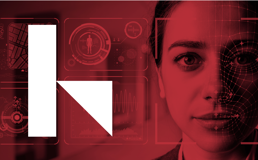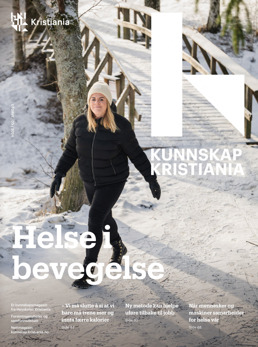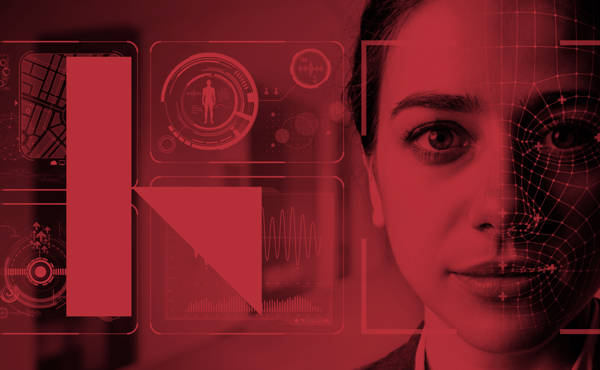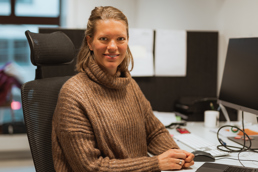Is posting on social media for the benefit of the audience, or about building an image as professionals?
KUNNSKAP FRA KRISTIANIA: Souad El Mghari on content creation among health care professionals
More and more people are relying on social media for health advice. In consequence, the people creating health promoting content hold a growing responsibility for the information shared. This responsibility extends beyond their audience, as it pertains to their entire profession.
Skepticism is likely on the rise due to all the self-proclaimed experts present on various social media platforms. With every action that online health professionals take, they must therefore safeguard the integrity of their field.
Professionals of preventive health who are creating content on social media may consciously or unconsciously be shaped by the content they share. We may ask: how much is social media linked to their professional identity and in what way?
And even further, is there a two-way relationship wherein these individuals may simultaneously use social media to build a professional image?
The role professionals of preventive health fields play in society is ever expanding as their voices are being magnified with social media. Should we be exploring how to leverage the role of social media in educating and forming future health professionals?
Building a professional identity through social media
Identity may be defined as an individual’s organized constellation of traits, attitudes, self-representations and social roles. With the advent of social media, and all it offers in terms of a person's ability to share different aspects of themselves, there has been a revitalization of research around identity.

Meld deg på vårt nyhetsbrev
In the context of professional identity, where an individual showcases their self-concept, and sense of belonging within a specific professional community, social media has greatly aided in this aspect of self-representation.
The fields of preventive medicine and public health share several objectives, among which we can find promoting general health, and preventing disease. When looking at the link between preventive health fields and social media, promotion is an important aspect.
One example of health promotion is the recent debate in Norway surrounding nutritionists who have been leveraging their platforms to promote healthy baby food. However, the products and recipes they promote might not provide babies with all the iron and other nutrients they need.
This raises several questions. When a professional nutritionist posts on social media, thereby becoming a content creator, does he or she post solely for the benefit of the audience, or is it about establishing themselves as professional nutritionists?
Health and fitness online communities
The same questions would go to professionals within other preventive health fields. Look at mental health professionals, for instance. According to Triplett, there is a growing number of mental health professionals who use social media to share informative content with a broader public. Information that would traditionally be communicated in a therapeutic setting is thus distributed through social networking platforms. Is this about painting a picture of themselves as professionals in the field?

Les temautgaven
Trainers and physical education instructors are no strangers to this social media takeover, either. In a study by Raggatt and others, half of the participants (a total of 180) indicated that they themselves are interested in learning about health and fitness through online communities.
In other words, social networking platforms have helped in shaping them as professional trainers.
Social Media use may impact future professional identity
On the one hand, professional identity construction is considered to always be under development. On the other hand, social media has a growing importance in the construction of professional identities as it offers places where individuals showcase their private lives as well as their professional experiences.
Thus, if social media is becoming more important in constructing identities, could we foresee how professions would be changing in the next years? And how can we prepare for that change?
Text: Souad El Mghari, PhD candidate, Merete Kolberg Tennfjord, associate professor, both at Department of Health Sciences, Kristiania, and Ragnhild Eg, senior scientist, Nofima.
References:
Ali, A. and D. L. Katz (2015). "Disease Prevention and Health Promotion How Integrative Medicine Fits." American Journal of Preventive Medicine 49(5): S230-S240.
Andrews, J. C., et al. (2017). "Digital Identity and Social Media." Journal of Interactive Media in Education(1).
Jiang, S. Y. and C. F. Ning (2022). "Interactive communication in the process of physical education: are social media contributing to the improvement of physical training performance." Universal Access in the Information Society.
Kasperiuniene, J. and V. Zydziunaite (2019). "A Systematic Literature Review on Professional Identity Construction in Social Media." Sage Open 9(1).
Pretorius, C., et al. (2022). "Mental health professionals as influencers on TikTok and Instagram: What role do they play in mental health literacy and help-seeking?" Internet Interventions-the Application of Information Technology in Mental and Behavioural Health 30.
This article was published at Science Norway on the 7th of April 2024 titled "Does social media content creation impact the professional identity of preventive health professionals?"
We love hearing from you:
Send your comments and questions regarding this article by e-mail to kunnskap@kristiania.no.
Siste nytt fra Kunnskap Kristiania
 Kunnskap KristianiaLes mer
Kunnskap KristianiaLes merFallende IQ og flere psykiske plager: Er gen Z den fortapte generasjonen?
Vi ser en skremmende økning i selvmordstanker, angst og depresjon blant unge mellom 18 og 25 år. I tillegg faller IQ-en. Kunnskap KristianiaLes mer
Kunnskap KristianiaLes merIs posting on social media for the benefit of the audience, or about building an image as professionals?
The voices of professionals of preventive health are heard across all platforms on the internet. Kunnskap KristianiaLes mer
Kunnskap KristianiaLes merKroppen, tankene, følelsene og omgivelsene virker sammen
Å lære, å kommunisere, å være menneske i verden kan aldri isoleres til noe rent psykisk eller fysisk. Kunnskap KristianiaLes mer
Kunnskap KristianiaLes merThe pervasive dangers of autocratic responses to crises
Misinformation and manipulating tactics in order to consolidate power were widespread during the pandemic.



